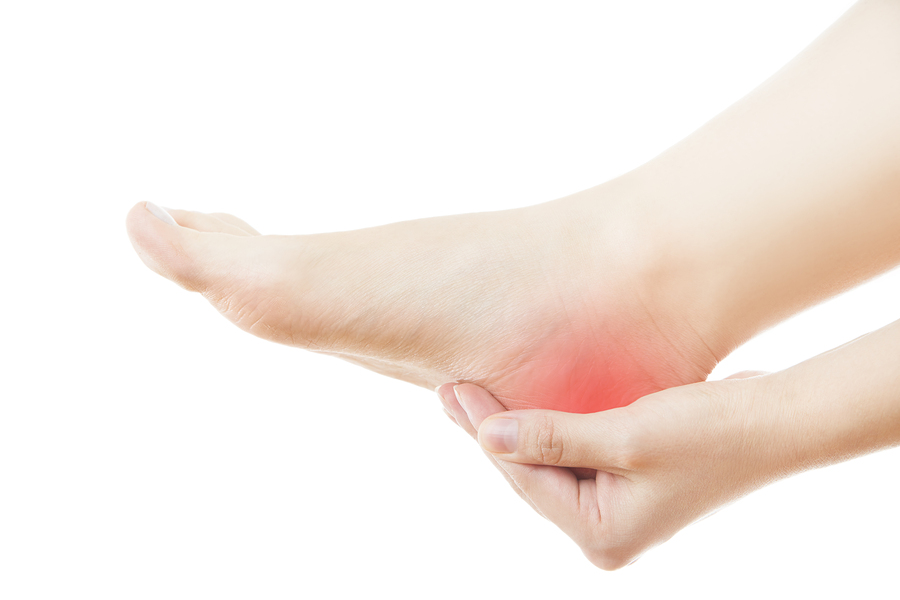 Plantar fasciitis is the condition most often responsible for pain in the heel of the foot. It affects about 10% of the population at some point in their lifetimes.
Plantar fasciitis is the condition most often responsible for pain in the heel of the foot. It affects about 10% of the population at some point in their lifetimes.
What is it? The plantar fascia are the ligaments that connect the heel of the foot with the ball of the foot and are responsible for supporting the arch. If this band of tissue tears or becomes inflamed, plantar fasciitis has developed, causing a stabbing pain in the heel and/or tightness or tenderness along the arch of your foot.
What causes it? There are several factors that can contribute to the development of plantar fasciitis, including:
- Age. It is more common in middle-aged people (over 40).
- Being on your feet a lot. It is more common to those who spend a lot of time standing or engaging in weight-bearing activities. Athletes, soldiers, those who have jobs or hobbies that require standing on hard surfaces for long periods of time, etc., are more likely to develop this condition than those who do not spend as much time on their feet.
- Excessive pronation. Those whose feet roll inward too much when they walk are more likely to develop plantar fasciitis.
- Rapid increases in length or levels of activity. Beginning a new running program or changing to a job that requires a lot more standing or walking than you are accustomed to may increase risk.
- Increased body weight. A body mass index (BMI) over 30 increases chances of developing the condition.
- Decreased calf muscle flexibility
- High arches or flat feet
What can be done? Physical therapy can help relieve the pain and discomfort that come with plantar fasciitis in several ways, without having to resort to drastic measures like surgery. Some treatments include:
- Helping in selection of good, supportive footwear or inserts that decrease stress to the plantar fascia and minimize pronation.
- Ice treatments to decrease inflammation and pain.
- Tapes and splints to position the leg and foot in such a manner that relieves the stress on the plantar fascia.
- Stretching exercises to increase the flexibility of the ankle and plantar fascia.
For more information about plantar fasciitis and what treatments we can provide, contact Aspire Hospital’s Department of Physical Therapy.
